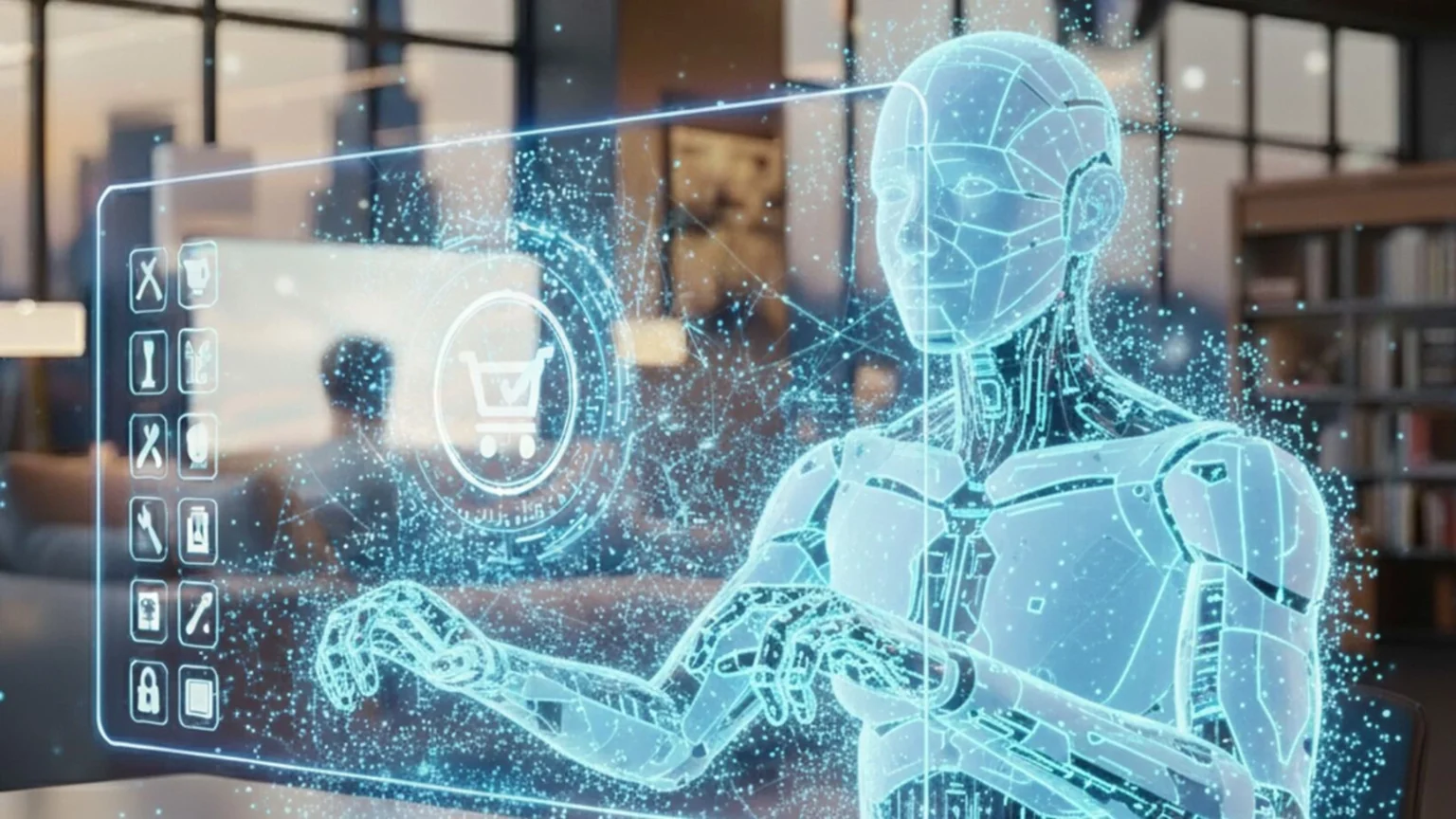AI agents will make purchases on their own, are you ready?
- Marco Flapper | 21-10-2025
Digital Trends for 2026
How AI, data, and automation are changing B2B e-commerce forever
The world of B2B e-commerce is changing faster than ever. Whereas a few years ago we were mainly talking about omnichannel and personalization, we are now talking about autonomous purchases, AI co-pilots, and data as a revenue model.
Intershop’s Digital Trends Report 2026 shows that companies experimenting with AI today will lead the market tomorrow. Not by doing more, but by working smarter. By seeing technology not as an end in itself, but as an accelerator of value, for both customers and organizations.
In this blog series, I will take you through the six most important trends that will determine success in B2B commerce in the coming years. From AI taking over the purchasing process to managers reinventing their roles.
Each article provides insights, concrete examples, and practical steps to get started yourself.
Whether you’re working on growth, efficiency, or customer focus, these trends will help you move forward.
And believe me: the future of e-commerce is not something that is going to happen. It is something that is already happening today.

Trend 2: AI agents will make purchases on their own—are you ready?
Sounds like science fiction? Yet it’s already reality: AI agents that make autonomous purchases exist. In the consumer market, this is already happening for repeat orders. And in B2B? In 2026, we’ll see the first real breakthrough.
Especially for repetitive purchases such as spare parts or standard products, speed and accuracy matter more than preference. This is where “agentic commerce” comes in: AI agents that independently search, compare, and buy, all within predefined rules.
What is agentic commerce?
Instead of a human making the purchasing decision, the process is (partially) taken over by a software agent that acts based on rules, preferences, and real-time data.
This agent:
- Recognizes the need (for example via a sensor or ERP integration);
- Checks stock or delivery times from different suppliers;
- Selects the most cost-effective or fastest option;
- Orders automatically, within preset budget limits.
Why this matters especially for B2B
B2B purchases are often rational, repetitive, and dependent on availability. This makes AI a perfect fit:
- Buyers do less manual work;
- Errors are reduced;
- Processes become faster and more reliable.
What this means for your webshop or e-commerce platform?
You need to prepare for “machine-to-machine” interaction:
- Structured product data: so the agent knows what it’s buying;
- Real-time availability and pricing: so decisions are rational;
- Stable API integration: so agents can communicate directly with your system;
- Clear contract terms: to maintain control over who orders and under what conditions.
First step: let your AI make a purchase
Want to see how this works? Try having an AI copilot simulate a purchase internally:
- Provide a standard product;
- Connect it to your catalog or webshop;
- Let it compare prices and delivery times;
- Evaluate the purchase proposal.
This shows where your platform falls short—and what you need to be ready for agentic commerce.
What’s the payoff?
Access to a new type of customer: AI agents. They buy faster, more reliably, and with less friction. And those who make their systems “agent-proof” will be more attractive to tomorrow’s customers.
In part 3 of this series, I’ll show how AI can not only support your customer but also boost your sales team—with smart “AI sales agents” that help close more deals.
Want to read the entire Digital Trends Report 2026 from Intershop and Neortus? It is available to download.
Neortus is Intershop Implementation Partner for B2B commerce with extensive knowledge and experience of the e-commerce platform.
Source: Intershop Digital Trends Report 2026
From strategy to success
Want to learn how to make your platform suitable for AI traffic and machine purchases? Or need help with data quality or API strategy? Feel free to reach out.

